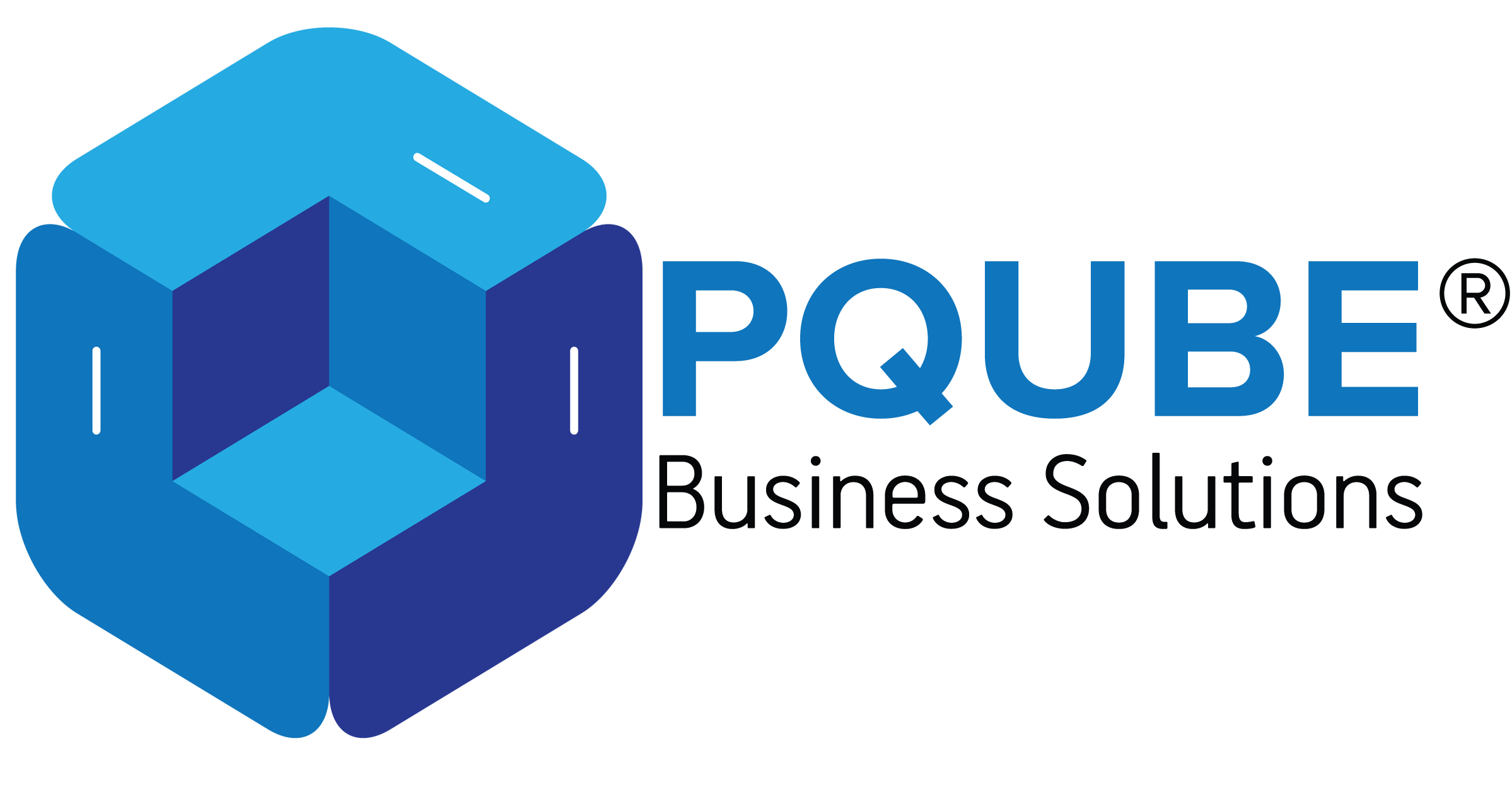As we move through 2024, the mobile app industry continues to flourish at an unprecedented pace. From businesses launching new products to developers refining their craft, the demand for robust, efficient, and scalable mobile applications has never been higher. With this increasing demand, mobile app development frameworks have become essential tools for creating dynamic and high-performing apps.
A mobile app development framework provides a structure for developers to build applications with ease. These frameworks offer a set of tools, libraries, and APIs that simplify the development process, helping developers focus on writing code that brings their app to life, rather than reinventing the wheel every time. With countless frameworks available, how do you know which one to choose? The right framework can be the difference between a successful app launch and a failed one.
In this post, we will explore the top 10 mobile app development frameworks dominating the industry in 2024, providing a detailed look at what makes each one unique. Whether you are a seasoned developer or a business looking to create the next big app, this guide will help you make the best decision for your next project.
Why Mobile App Development Frameworks Matter?
Mobile app development frameworks matter because they significantly reduce the time, effort, and cost of building mobile applications. Rather than building apps from scratch, developers can leverage pre-existing structures and tools to speed up the development process. The best frameworks allow for the reuse of code across different platforms, helping you reach a broader audience without duplicating effort. Moreover, frameworks often come with a range of libraries and plugins, ensuring your app has access to the latest technologies and device capabilities.
Choosing the right framework impacts not only the development speed but also the performance, scalability, and user experience of the final product. Let’s dive into the top frameworks in 2024.
1. React Native
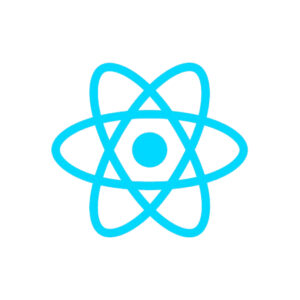
React Native, developed by Facebook, has continued to lead the mobile app development landscape. Known for its ability to create cross-platform apps with native-like performance, React Native allows developers to build mobile applications using JavaScript and React. One of its greatest advantages is the use of a single codebase that works for both iOS and Android, cutting development time significantly while still delivering a high-quality user experience.
React Native’s active community and extensive libraries make it a powerful tool for developers of all levels. The large ecosystem allows for the easy integration of third-party plugins and modules, giving developers the flexibility to customize and extend their apps. As businesses prioritize efficiency and user experience, React Native’s capacity to blend native components with cross-platform functionality ensures that it remains a top choice.
Key Features
- Reusable codebase: Write once, deploy on both iOS and Android.
- Hot Reloading: Allows developers to see changes in real-time without recompiling the whole app.
- Third-party plugins: Strong support for integrating plugins that offer native features.
- JavaScript Foundation: Leveraging the world’s most popular programming language.
Use Cases
- Ideal for companies and startups that need to launch cross-platform apps quickly and efficiently.
Who’s Using It?
- Ideal for companies and startups that need to launch cross-platform apps quickly and efficiently.
2. Flutter

Flutter has rapidly grown in popularity, especially with its backing by Google. It’s known for offering a high level of flexibility and visual appeal. Flutter uses the Dart programming language, designed specifically for the framework, allowing developers to build applications with a rich set of customizable widgets. These widgets give Flutter a distinctive edge in creating highly interactive and visually stunning user interfaces.
One of Flutter’s standout features is its ability to build apps with a single codebase for Android, iOS, and even web platforms. This reduces development time and resources, while the framework’s hot reload feature lets developers see the changes they make instantly, which significantly accelerates debugging and fine-tuning.
The framework is particularly suited for apps that require high performance and a dynamic interface, such as e-commerce, entertainment, or multimedia apps. With Flutter, you can create apps that have both a polished, native-like feel and a distinct, interactive design that sets them apart from the competition.
Key Features:
- Widget-based architecture: Allows developers to build UIs that can scale across different platforms.
- Rich UI components: Create beautiful, custom user interfaces.
- Dart language: Specifically designed for Flutter, ensuring smooth app performance.
- Hot Reload: Speeds up development and bug fixes.
Advantages:
- Visually stunning UIs that can mimic native look and feel.
- Fast development thanks to the widget system.
- Strong community and extensive documentation.
Use Cases:
- Ideal for building visually rich apps, such as e-commerce or entertainment platforms.
Who’s Using It?
- Google Ads, Alibaba, and Reflectly are some of the major apps developed using Flutter.
3. Ionic
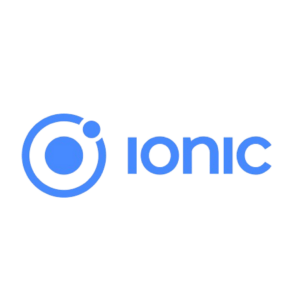
Ionic stands out for its ability to allow web developers to transition smoothly into mobile app development. Using web technologies such as HTML, CSS, and JavaScript, Ionic simplifies the process of creating cross-platform applications. One of its main selling points is its tight integration with Angular, which provides added performance and scalability to the apps built on this framework.
Ionic offers a wide range of pre-built UI components, making it easy for developers to create attractive, functional user interfaces without starting from scratch. Additionally, its compatibility with Capacitor and Cordova plugins allows apps built with Ionic to access native device features like cameras, GPS, and notifications.
For those looking to build hybrid or progressive web apps (PWAs), Ionic is an excellent choice. Its ability to bridge the gap between web and mobile development ensures that developers can focus on crafting a single solution that runs seamlessly across all platforms.
Key Features:
- Web-based tech: Built using HTML5, CSS, and JavaScript.
- Integration with Angular: Strengthens app performance.
- Pre-built UI components: Ready-to-use components for quicker app development.
- Capacitor and Cordova plugins: Access native device functionality.
Advantages:
- Excellent for web developers looking to transition into mobile app development.
- Strong community support and extensive documentation.
- Easy to deploy across multiple platforms, including PWAs.
Use Cases:
- Best for hybrid apps and PWAs, including e-commerce, educational platforms, and content-based apps.
Who’s Using It?
- MarketWatch, Pacifica, and Diesel have developed their apps using Ionic.
4. Xamarin – Microsoft’s Solution for Cross-Platform Apps
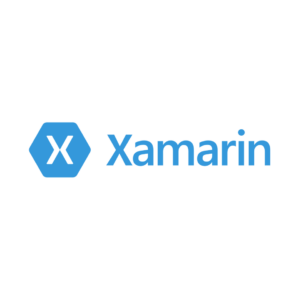
Xamarin, backed by Microsoft, offers a comprehensive solution for developers aiming to build high-performance cross-platform apps. Unlike some other frameworks that rely on web technologies, Xamarin uses a single C# codebase to build native-like apps for Android, iOS, and Windows platforms. This allows developers to access native APIs and deliver apps with a true native experience.
One of Xamarin’s greatest strengths is its seamless integration with Microsoft’s suite of tools, especially Visual Studio. Developers can leverage this integration to streamline the development process and create highly secure, scalable applications, particularly suited for enterprise solutions. Xamarin also offers excellent performance, making it a preferred choice for developers who want both cross-platform functionality and native performance without compromise.
The ability to use one language (C#) across different platforms makes Xamarin ideal for teams already familiar with Microsoft technologies. With its strong security features, Xamarin is often used in industries where sensitive data and enterprise-grade performance are critical, such as finance, healthcare, and government sectors.
Key Features:
- Shared C# codebase: Develop apps for iOS, Android, and Windows.
- Native API access: Offers a near-native experience for users.
- Integration with .NET: Seamless connection with Microsoft’s tools and services.
- Strong security features: Ideal for enterprise-level applications.
Advantages:
- High-performance apps with access to native functionality.
- Security and scalability, making it ideal for enterprises.
- Integration with Visual Studio for a smooth development process.
Use Cases:
- Best for enterprise-level apps where security, performance, and scalability are critical.
Who’s Using It?
- Alaska Airlines, HCL, and Just Giving are examples of companies utilizing Xamarin.
5. Mobile Angular UI – Combining Web and Mobile Development
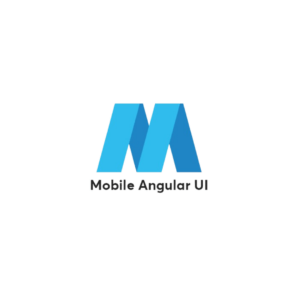
Mobile Angular UI combines the best of both worlds by bringing the strengths of AngularJS and Bootstrap to mobile app development. This framework offers a lightweight solution for developers looking to create responsive, mobile-friendly applications using familiar web technologies. Its simplicity makes it a great option for developers who want to build apps quickly without sacrificing performance or user experience.
This framework is particularly effective when creating hybrid apps that need to work across different devices and screen sizes. Its touch-enabled UI components and fast prototyping capabilities make it ideal for developers who are working on projects with tight deadlines or MVPs (Minimum Viable Products).
Mobile Angular UI leverages the responsive design principles of Bootstrap and combines them with Angular’s powerful data-binding capabilities, making it easier to create interactive mobile apps that look and feel like native apps, all while using traditional web development tools.
Key Features:
- Angular based: Provides the robust performance of Angular.
- Bootstrap-like structure: Easy for developers familiar with web technologies.
- Responsive and touch-enabled: Makes development quick and intuitive.
- Fast prototyping: Ideal for MVPs or early-stage development.
Advantages:
- Lightweight and easy to learn for web developers.
- Fast development cycles, especially for smaller apps.
- Excellent support for responsive and touch-based interfaces.
Use Cases:
- Best suited for hybrid apps, responsive mobile websites, and MVPs.
Who’s Using It?
- It has been used by numerous small-to-medium-sized enterprises for hybrid apps.
6.Adobe PhoneGap

Adobe PhoneGap has long been one of the go-to frameworks for developers looking to build hybrid mobile apps. Built on the open-source Apache Cordova project, PhoneGap allows developers to use web technologies like HTML, CSS, and JavaScript to create apps that run on multiple platforms. This approach makes it easier for web developers to transition to mobile development without learning entirely new programming languages.
The strength of PhoneGap lies in its simplicity and flexibility. By leveraging web technologies and Cordova plugins, developers can easily build apps that access native device features like cameras, GPS, and accelerometers. This makes PhoneGap particularly suitable for building apps with moderate complexity and a need for native-like performance.
In addition to offering a straightforward development process, PhoneGap also provides a cloud-based build service, allowing developers to compile their apps without worrying about setting up complicated environments. This makes it ideal for teams with limited resources or smaller projects.
Key Features:
- Web technology-based: Uses HTML, CSS, and JavaScript.
- Cordova plugins: Access native device features.
- Cloud-based build service: Simplifies the app compilation process.
- Open-source framework: Backed by an active community.
Advantages:
- Ideal for web developers looking to build mobile apps.
- Simple development process with access to native device capabilities.
- Cloud-based build simplifies deployment.
Use Cases:
- Great for building simple to moderately complex hybrid apps.
Who’s Using It?
- Wikipedia, FanReact, and HealthTap have used PhoneGap to build their apps.
7. Appcelerator Titanium

Appcelerator Titanium has made a name for itself as a framework designed to create native mobile apps using JavaScript. What sets Titanium apart is its ability to compile JavaScript into native code, offering developers a robust tool for building apps that deliver high performance and a truly native user experience across both iOS and Android platforms.
Titanium provides an extensive library of APIs that allow developers to tap into native features such as cameras, push notifications, and geolocation. The framework also comes with a module marketplace, making it easier to integrate third-party modules and enhance app functionality. This makes Titanium a solid choice for developers who need to build complex, feature-rich apps.
While it does have a steeper learning curve compared to other frameworks, the trade-off is that Titanium allows for the creation of native apps that feel fast, responsive, and efficient. This framework is ideal for projects where performance and user experience are top priorities.
Key Features:
- Native code compilation: Converts JavaScript into native code.
- APIs for native features: Access device features like GPS and cameras.
- Module marketplace: Extend app functionality with third-party modules.
- Multi-platform support: Build apps for iOS and Android from a single codebase.
Advantages:
- Delivers high-performance, native-like apps.
- Large API library for accessing device features.
- Strong marketplace for enhancing app capabilities.
Use Cases:
- Best for building complex, native apps that require high performance and native functionality.
Who’s Using It?
- PayPal, CitiBank, and Avis have built their mobile apps using Appcelerator Titanium.
8. Framework 7

Framework 7 is an open-source mobile app development framework that stands out due to its ability to deliver a native-like user experience using only HTML, CSS, and JavaScript. What makes Framework 7 unique is its focus on providing a seamless experience for hybrid app development, particularly for iOS and Android platforms.
Framework 7 is known for its simple, lightweight structure and easy-to-understand architecture, making it a popular choice among developers who want to build hybrid apps with minimal hassle. The framework is packed with a set of pre-built UI components and customizable themes, ensuring that apps built with Framework 7 not only perform well but also look great.
Moreover, the framework is highly customizable, allowing developers to adjust its components according to their specific project needs. It’s a great option for those looking to create responsive and fast apps without dealing with complex programming languages.
Key Features:
- Simple, easy-to-use architecture: Ideal for developers of all levels.
- Customizable UI components: Pre-built themes and components for quick design.
- Lightweight framework: Reduces overhead for faster app performance.
- Supports hybrid apps: Great for building cross-platform mobile apps.
Advantages:
- Simple and intuitive, even for beginners.
- Highly customizable UI components.
- Lightweight and fast, ideal for mobile apps with minimal complexity.
Use Cases:
- Best suited for hybrid apps or progressive web apps (PWAs), such as news or blog platforms.
Who’s Using It?
- Kaspersky and Aetna have used Framework 7 for hybrid app development.
9. jQuery Mobile

jQuery Mobile is a touch-optimized mobile app development framework built on the popular jQuery library. It is designed to create responsive mobile apps and websites using HTML, CSS, and JavaScript. One of JQuery Mobile’s strengths is its ability to adapt to a wide range of devices and platforms, making it an excellent option for developers who need to reach users on different operating systems with minimal effort.
jQuery Mobile excels in building lightweight apps that prioritize compatibility and responsiveness. While it may not offer the same level of performance as native apps, it’s perfect for projects that don’t require intensive computing power or complex interfaces. It’s also an ideal choice for developers who want to build simple, cross-platform apps quickly without learning new programming languages.
Because jQuery Mobile is based on the popular jQuery library, web developers familiar with it will find the learning curve minimal. Its focus on compatibility makes it a great framework for building apps that run on older devices or in environments with limited resources.
Key Features:
- Based on jQuery: Leverages the popular jQuery library.
- Cross-platform compatibility: Runs on multiple operating systems.
- Responsive design: Ensures apps perform well across different devices.
- Lightweight framework: Ideal for building smaller apps.
Advantages:
- Great for building lightweight, responsive apps.
- Familiar to web developers with jQuery experience.
- Supports a wide range of devices and platforms.
Use Cases:
- Ideal for smaller, simpler apps, such as personal blogs, news platforms, or basic e-commerce sites.
Who’s Using It?
- The Weather Channel, BBC, and Amazon have used jQuery Mobile in various mobile projects.
10. Corona SDK

Corona SDK, also known as Solar2D, is one of the best frameworks available for developing 2D mobile games in 2024. While it can be used for creating general mobile applications, its strength lies in building powerful and high-performance 2D games. The framework uses Lua, a lightweight scripting language, which makes it fast and easy to learn for new developers.
Corona SDK offers cross-platform capabilities, enabling developers to create games for both iOS and Android using a single codebase. It also comes with a built-in physics engine, which is perfect for developing interactive games with real-time motion and collision detection. This framework is widely recognized for its speed and efficiency, allowing developers to build games with high frame rates and smooth gameplay.
While Corona SDK is primarily known for game development, its lightweight structure and ease of use make it an attractive option for developing other types of mobile apps as well. Whether you’re building a simple mobile app or an interactive game, Corona SDK provides the tools you need to bring your ideas to life.
Key Features:
- Lua scripting language: Lightweight and fast for game development.
- Cross-platform development: Single codebase for iOS, Android, and desktop.
- Built-in physics engine: Ideal for building interactive 2D games.
- High-performance framework: Optimized for speed and smooth gameplay.
Advantages:
- Simple to learn and highly efficient for building games.
- Cross-platform capabilities for mobile and desktop.
- Strong community support and a wide range of tutorials.
Use Cases:
- Best for building interactive 2D games but can also be used for creating simple apps.
Who’s Using It?
- Popular games like Angry Birds and Fun Run were developed using Corona SDK.
Conclusion
As we navigate through 2024, the mobile app development landscape is filled with dynamic frameworks, each offering unique advantages. Choosing the right mobile app development framework is crucial to ensuring your app not only meets your business goals but also delivers an exceptional user experience. Whether it’s the versatility of React Native, the stunning visuals of Flutter, or the simplicity of Ionic, there’s a solution for every app need.
Understanding the strengths, use cases, and specific benefits of these frameworks will help you make informed decisions for your next project. At PQube, we specialize in guiding businesses through this critical process. From concept to launch, our experienced developers are here to ensure your app is built on the most suitable foundation, optimized for performance, and ready to make an impact in today’s competitive market.
If you’re looking to create an innovative mobile app that stands out, reach out to PQube today. Let’s collaborate and turn your vision into a cutting-edge app that exceeds expectations and engages users like never before!
